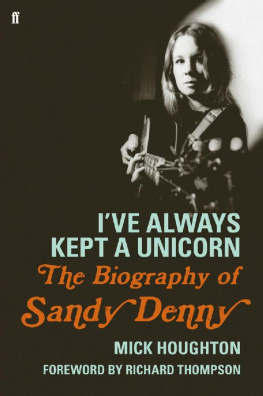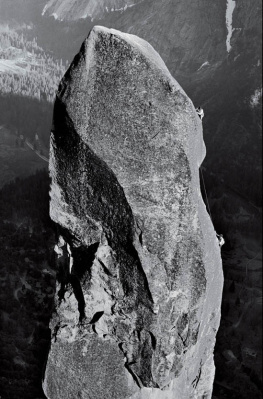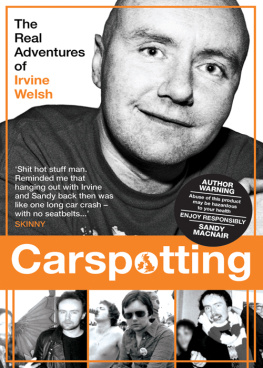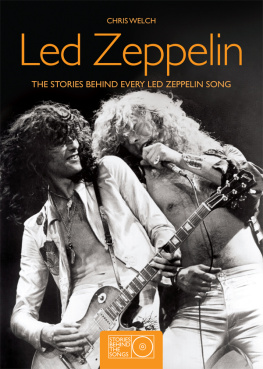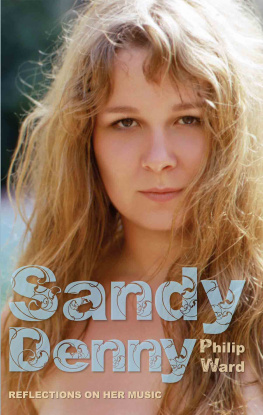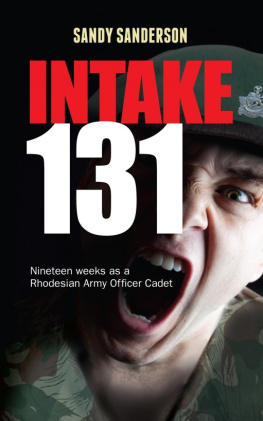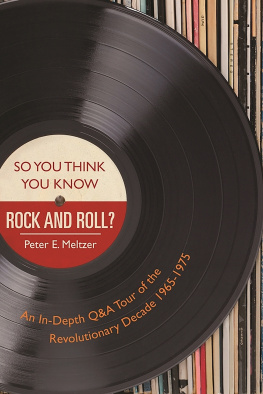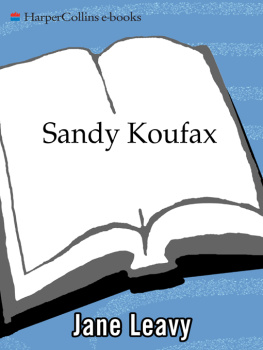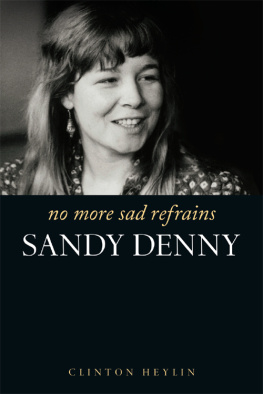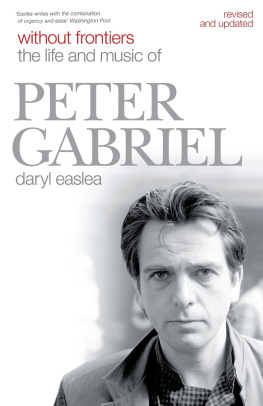
Ive Always Kept a Unicorn
THE BIOGRAPHY OF
SANDY DENNY
MICK HOUGHTON

To Bert and Loren
Contents Illustrations
PLATES
Foreword by Richard Thompson
I had the privilege of working with the best. Nothing in the intervening years has changed my mind. As decades pass, and fashions in music come and go, I realise more and more that Sandy Denny was not only the most important singer of my generation, but that no one has come along to touch her since. Who has her dynamic range, from unbelievable power to a whisper, all with the utmost expression? Who has her musical intelligence, her ability to sing the right thing at the right time? Who has her command of the dramatic, and her ability to tell a story by inhabiting the song? Then there is the unique and distinctive songwriting, which few, if any, can match, and the beautiful accompaniment on guitar and piano, and her great charisma as a performer it leaves the rest of the field forever struggling to catch up.
I think about Sandy a lot, and I suppose through the slightly inaccurate haze of memory I remember mostly the times when she was happy, bubbly and a joy to be with; but what made her a great artist were the inner conflicts and emotional complexities that drove her. I regret deeply the fact that she is not better known these days, and I hope Micks fine book will go some way towards rectifying the situation. She should be the true yardstick by which all singers and songwriters are measured, and I hope those of her generation who missed her the first time and newer generations will discover her and feel the same.
Preface: Your Fickle Friends Are Leaving
I was eighteen when I first heard Sandy Denny, early in September 1968. I had been music mad since I was eight or nine years old, spending many long hours in that bedroom world with a radio, a reel-to-reel tape recorder and a record player for company. Sandys voice raised the hairs on the back of my neck. I was an avid listener to John Peels Top Gear and, that particular night, I was poised to tape the best bits because Fairport Convention were one of the featured groups. Id seen them play a few times, all at Middle Earth in Covent Garden, but I had no idea they now had a new girl singer. She sang two songs, Joni Mitchells Eastern Rain and another called Fotheringay; at some point in the course of the show John Peel must have said that her name was Sandy Denny. Fotheringay was like a slap in the face; it stopped me in my tracks.
It was by no means the first time this had happened to me. I can still remember that visceral blast on hearing Johnny Kidds Shakin All Over, the Kinks You Really Got Me or the Byrds Eight Miles High. More often it was voices and moody sentiments that stuck with me. Having two older sisters exposed me early in life to Rick Nelsons Lonesome Town, the Everly Brothers So Sad (To Watch Good Love Go Bad) and Elvis singing Im left, youre right, shes gone, before discovering such things for myself: Roy Orbisons Only the Lonely, Billy Furys Halfway to Paradise, Skeeter Daviss End of the World, the Four Seasons Rag Doll, the Beach Boys Dont Worry Baby and countless other pop songs in which lonesome and sad was the prevailing mood.
Paradoxically, like all the best sad songs, Fotheringay was also uplifting. I whirled back the tape again and again listening to Sandys featured songs. I had never much cared for girl singers, not until hearing Grace Slick for the first time, again through John Peel. He often played Jefferson Airplanes Somebody to Love and White Rabbit on his Perfumed Garden show on Radio London; here was Britains answer to Jefferson Airplane, with a singer who was Grace Slicks equal. No, Sandy Denny was better. Grace Slicks voice was sexy and just a little sinister but Sandys could actually reach inside and wring out every ounce of feeling. It still has that effect on me.
By chance, I already had tickets for the Festival of Contemporary Song at the Royal Festival Hall at the end of the month, and Fairport Convention were on a tantalising bill. Id bought the tickets ostensibly to see Al Stewart; Id been a fan since hearing him week in, week out at Bunjies folk club and even went to his concert debut at the Festival Hall in 1967. Living in south London, it was a handy venue for me; you could just walk across the bridge and catch the last train home with time to spare. In June 1968 I had seen Pentangle there, and three months earlier, the Incredible String Band, supported by Tim Buckley. But here, lining up for the Festival of Contemporary Song, were the Johnstons, Joni Mitchell, Jackson C. Frank and Fairport Convention, alongside Al Stewart, who unveiled a new, eighteen-minute journey through his adolescent sexual adventures, Love Chronicles. Despite the songs controversial use of the word fucking, nobody was noticeably shocked.
Joni Mitchells debut album had only just been released; within a few years she would become the benchmark by which all female singer-songwriters would be measured, and none more so than Sandy Denny. My distant memory of Joni Mitchell was the power of her voice and a confidence that belied an almost gawky stage presence. She made a dismissive comment about an Irish group who had just covered Both Sides Now; unfortunately for them, that group was the Johnstons, who had already closed their set with the song, as did she. Id seen American folk singer Jackson C. Frank a few times at Cousins and Bunjies. He was a sullen bear of a man whose songs were appealing but beyond my emotional grasp. Few in the audience that night or perhaps even beside her on stage would have known that he had once been Sandy Dennys boyfriend.
Fairport Convention closed the show. Whatever effect listening to the Peel Session tapes had on me, to see Fairport live with added Sandy was something else. It wasnt just about her, either. They played Reno, Nevada, during which guitarist Richard Thompson let fly with a long, flowing, electrifying solo. If I remember correctly Sandy sang Eastern Rain and a chilling Ill Keep It with Mine. Both were on Fairports What We Did on Our Holidays, released a few months later. What I most vividly remember, however, was how unbelievably exciting Fairport Convention were that night; the combination of the voices of Sandy Denny and Ian Matthews was incredible.
They sang Tim Buckleys Morning Glory this group also clearly had the best taste ever but the real tour de force was their version of Leonard Cohens Suzanne. Fairport were no longer the frenzied West Coast-sounding group Id seen bleary-eyed at Middle Earth. On one side of the stage stood Ian Matthews, motionless, almost in a dream, and on the other stood Sandy, equally lost in song; the two swapped the verses back and forth while Richard Thompson, buried beneath an enviable mound of tousled hair, propelled the song with a rhythmic staccato guitar over which their voices soared. When Sandy Denny came in with the line And Jesus was a sailor it was magical. The next day John Peel repeated the Fairport session, which now included the same brilliant arrangement of Suzanne. Stupidly, I didnt tape it; it was at least ten years before I heard it again on Fairports Heyday collection of vintage Peel Sessions.
A few days later I went off to university to study politics. I hated it, for the most part; my obsession with music helped get me through the next few years. Leicester had little to recommend it but at least was in a broad catchment area that took in Nottingham and Birmingham, where, over the next three years, every great British band or musician and the odd visiting American must have played at some point. Its no exaggeration to say that every week there was a great gig happening somewhere within reasonable travelling distance: Family, the Bonzo Dog Band, Love, Liverpool Scene, John Martyn, Blossomtoes, Peter Greens Fleetwood Mac, Free, Caravan, the Move, Derek and the Dominoes, Eclection and so many more. I saw Fairport again twice once more during Sandys all-too-brief tenure and then the full-throttle Full House band. Even Fotheringay played one of their too few gigs in Leicester, at the stuffy De Montfort Hall in March 1970. For me, they were better than the Liege & Lief -era Fairport Convention Id seen six months before.
Next page
